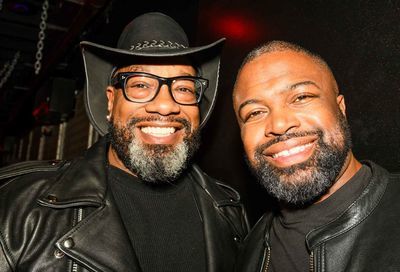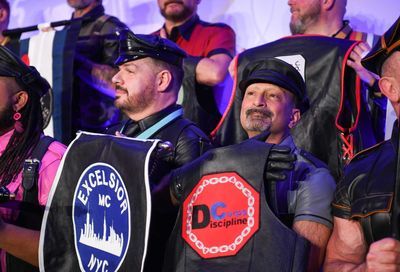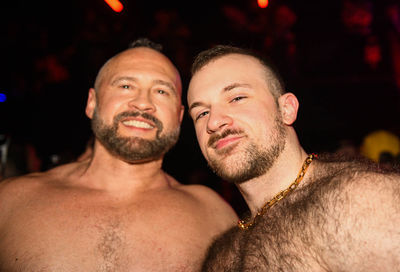Trans Politician in Russia Detransitions to Avoid Institutionalization
The politician formerly known as Yulia Alyoshina told a newspaper that authorities had wanted to force them into a mental institution.

Russia’s first out transgender politician, who recently made a public announcement that they had detransitioned, has claimed in a recent interview that they did so only after being threatened with being sent to a psychiatric hospital.
Yulia Alyoshina — whom we are referring to using gender-neutral terminology until it is clear what pronouns they prefer to use, without external or state coercion — told followers on their Telegram account last month that they “realized” they were born a man and would be returning to their assigned sex at birth, going by their given name, Roman Alyoshin.
“I went through old albums of my ancestors, prayed for them, and it helped the idea set in that I’m a guy,” Alyoshina wrote on Telegram at the time. “I’m a patriot of my country, that’s why I live in Russia. I apologize to all the Russian people!”
Despite their public pronouncements of detransitioning, Alyoshina made comments, in a interview with the Baltic edition of Novaya Gazeta, indicating that they had effectively been forced into making those statements.
“According to insider information, the Russian authorities want to lock me up in a psychiatric hospital,” Alyoshina told the newspaper. “Because of this stress, I started posting on my Telegram channel in May and June. I have been under severe stress since winter.”
Historically, when Russia was part of the Soviet Union, incarceration at psychiatric institutions was used to punish government critics. The practice has reportedly been revived — not all that surprising, given President Vladimir Putin’s role as a former foreign intelligence officer for the KGB.
[advert2]Alyoshina came out as transgender in 2020, at age 30, managing to successfully change their identity documents, passing required medical examinations, and receiving permission from their doctor to change their gender to female. But they implied that, under the law, gender transitions are no longer recognized.
“It turns out that if you think logically, in order to live in Russia, you have to be the gender you were born with. I was born a boy, my name was Roman. So, I have to go back,” they told Novaya Gazeta.
But Alyoshina also made other comments appearing to imply that the “detransition” was coerced, rather than a choice made of their own free will.
“I am a human being. I do not have a split personality. I was born, at birth I was given the name Roman. Then I wanted to become a woman and chose the name Yulia. This is, in fact, the right of any civilized person,” they said. “Of course, I can force myself to be Roman. Yes I can, by taking all my willpower into a fist, I can force myself to be Roman and live like Roman. But in this case, I am going against my heart.”
Alyoshina said they have not received support from the Russian Orthodox Church since “detransitioning.”
“I went to the Russian Orthodox Church for a week here in Barnaul,” they said. “I want to say that the attitude towards me was, to put it mildly, bad, to put it bluntly, disgusting. I thought they would accept me, hug me, and generally help me. But, unfortunately, they rejected me.”
In Russia, as the Putin-led government has led a decades-long crackdown on forms of LGBTQ visibility, and has vocally opposed the expansion of LGBTQ rights, and has sought to link LGBTQ identity to Western culture as a corrupting influence.
Since Russia’s 2022 invasion of Ukraine, LGBTQ people and allies have been seen as potentially vulnerable to “indoctrination” and LGBTQ spaces are viewed as potential breeding grounds for anti-war activism. This has especially become the case following the Russian Supreme Court’s declaration that the “global LGBTQ+ movement” was an “extremist” organization, prompting law enforcement authorities to conduct raids of venues where LGBTQ people are believed to gather.
That ruling has also been used to prosecute and even imprison Russian citizens for displaying symbols or flags representing the LGBTQ community.
In January, following the Supreme Court’s decision, Alyoshina wrote on their Telegram channel that they had appealed to the court, asking for “clarification” as to whether a fully transitioned transgender individual could exist in society, and whether they could “in personal communication with other people, not hide the fact of this transition.”
Alyoshina also noted that they had previously received press for being the country’s first out transgender politician, and questioned whether that alone could be grounds for prosecuting them as an “extremist.”
Alyoshina said the court replied to their appeal, noting that it “doesn’t provide explanations.”
Support Metro Weekly’s Journalism
These are challenging times for news organizations. And yet it’s crucial we stay active and provide vital resources and information to both our local readers and the world. So won’t you please take a moment and consider supporting Metro Weekly with a membership? For as little as $5 a month, you can help ensure Metro Weekly magazine and MetroWeekly.com remain free, viable resources as we provide the best, most diverse, culturally-resonant LGBTQ coverage in both the D.C. region and around the world. Memberships come with exclusive perks and discounts, your own personal digital delivery of each week’s magazine (and an archive), access to our Member's Lounge when it launches this fall, and exclusive members-only items like Metro Weekly Membership Mugs and Tote Bags! Check out all our membership levels here and please join us today!




























You must be logged in to post a comment.